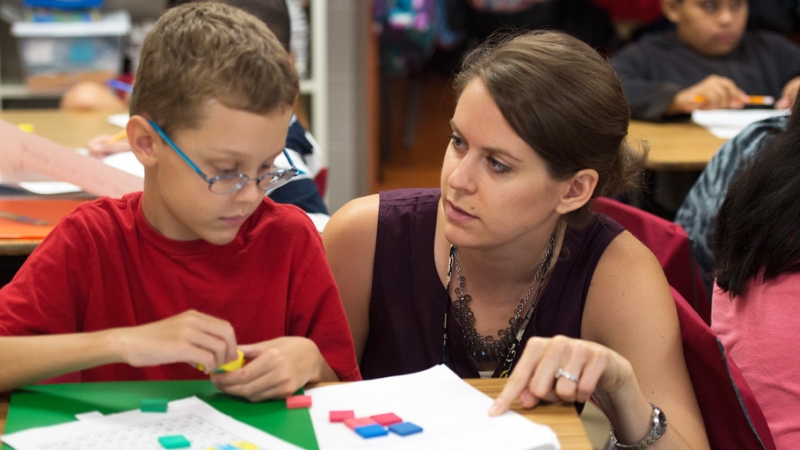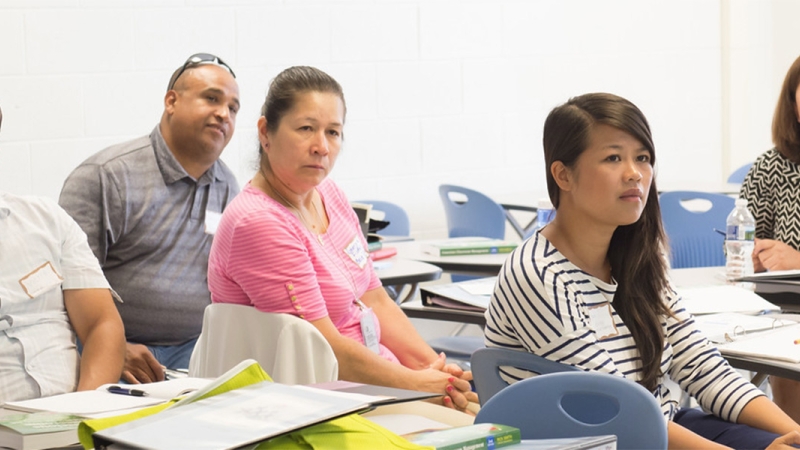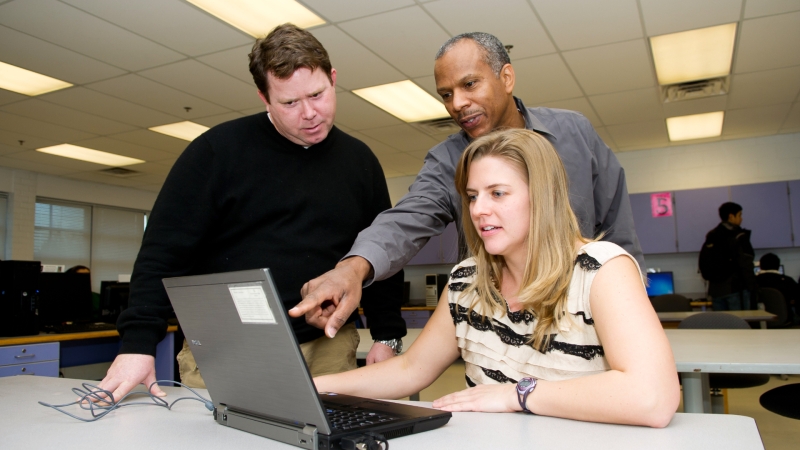
Mentor - Instructional Coaching
Instructional coaches serve in the role of a mentor as they continue to build trusting relationships with the staff in a school to develop partnerships with all stakeholders.
Coaches strive to develop in novice teachers a practice of continuous improvement by encouraging them to identify professional growth goals and to reflect on their practice.
- Joellen Killion and Cindy Harrison; Taking the Lead
The Role of the Mentor:
As a mentor, coaches provide ongoing support to the staff members in their buildings. They work to continue to build trusting relationships to establish trusting relationships within the building. Coaches draw upon their experiences in order to leverage the best supports needed by staff in order to provide the best instruction to students.
Here are some ways that FCPS Instructional Coaches serve in this role:
- Collaborating with teachers to plan differentiated lessons to students.
- Modeling lessons within coachees’ classrooms.
- Observing a co-planned lesson in order to provide specific feedback to teachers.
Though it may seem counterintuitive, perhaps the greatest value of an Instructional Coach is that they don’t always give answers. Rather, they empower and build capacity in others to come up with their own answers.
- Tim Thomas; Principal, Annandale High School

School Leader
Instructional coaches serve in the role of a school leader when they share the school vision, align their professional goals with school and district goals, and share responsibility for the school’s overall success.

Classroom Supporter
Instructional coaches serve in the role of a classroom supporter when they work inside classrooms to help teachers implement new ideas through demonstration, co-teaching, or observation and feedback.

Instructional Specialist
Instructional coaches serve in the role of an instructional specialist when they work with teachers to plan for high-yield instructional strategies to use in the classroom with students.

Curriculum Specialist
Instructional coaches serve in the role of a curriculum specialist when they collaborate with teachers to develop an understanding around their curriculum in order to provide the best instruction to their students.

Catalyst for Change
Instructional coaches serve in the role of a catalyst for change when they question the status quo, always seeking to provide the best educational experience for students.

Learning Facilitator
Instructional coaches serve in the role of learning facilitators when they train teachers in new instructional strategies, facilitate whole school professional development opportunities, and support the work of collaborative learning teams.

Data Coach
Instructional coaches serve in the role of a data coach when they analyze data to make informed instructional decisions to meet the needs of all learners.

Learner
Instructional coaches serve in the role of a learner who model continual improvement, reflect on their work by seeking and graciously receiving feedback, experimenti with new ideas, and use what they learn to help all teachers and students achieve.

Resource Provider
Instructional coaches serve in the role of a resource provider when they support teachers in developing the knowledge of available resources, such as curriculum and instructional resources.